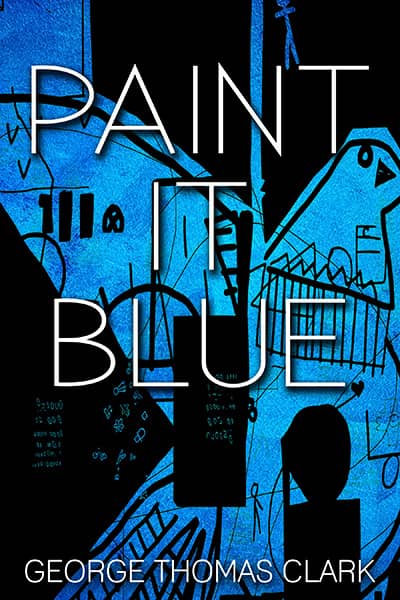Opponents of Immigration Hurl Letters and Insults
May 6, 2005
Who are the angriest people in the United States? Are they the supporters or opponents of war in Iraq, neocons or neoliberals, the devout or the secular, disrespected homemakers or overworked career mothers? No is the answer to each of the aforementioned inquiries. The most outraged people in the land are those actively opposing illegal immigration. I know. They’ve been writing me many letters. Some are obscene, some semi-literate, but most are reasonably well-written, and all carry the same general tone: since I believe illegal immigration on the whole benefits the United States, I’m a proponent of “unilateral disarmament, a “self-hating intellectual,” a propagandist,” a “sorry ass,” and most distressing, a guy who’s only striving for “five minutes of fame” as a writer. Evidently, I’m to be denied the additional ten Andy Warhol said we’re all entitled to.
What accounts for such venom and anger? Defenders of the border who want immigration laws literally interpreted – which the political leaders of the United States clearly do not – offer a variety of reasons, and indignantly declare none of them has anything to do with race: “The illegals are trying to create a Little Mexico with excessively high birth rates… They don’t come here to be Americans… They never would have a chance to learn our ways… They consume too much aid… They commit too many crimes… They take jobs that our children used to depend on to work their way through college… They are Mexico’s disposable humans…”
I’m not going to try to refute all those points. When a nation has eleven million generally poor illegal immigrants, the crime rate is going to rise and the burden on social services will inevitably increase. However, assertions that immigrants don’t want to be assimilated here and only take from this society are imbecilic and unworthy of further comment.
Let’s instead deal with the essential issue: why have so many people come here? The answer can be found in a beginning English as a Second Language civics text I used this week: “America needed farmers and workers.” That is in reference to immigration a century ago. It is also an unignorable fact today. People come to America, legally or illegally, to work. That is how they improve their standard of living. It has been that way a long time.
Take a look a history. I reviewed “The National Experience,” a college history text I’d read thirty years ago. People upset about immigration today would have been hysterical in 1890 when a quarter of Philadelphians were foreign born as were one-third of the residents of Boston and Chicago. Eighty percent of those living in New York City were either foreign born or sons and daughters of foreign parents. And those folks were not the traditional Protestant immigrants from England, Ireland, Germany, and Scandinavia. They were primarily Catholics or Jews from Italy, Austria, Hungary, Poland, Serbia, and Russia. Their “habits and ways appeared outlandish” to those established here, and there was an “increasing tendency to stress racial differences.” There was also “an increasing concern over the ills of urban life,” and “the new immigrants were blamed for many serious city problems that had little to do with racial or national origin.”
Sounds like a description of contemporary life. And the history text writers, with unanticipated foresight, were just heating up. They noted that organized labor “feared management would hire unskilled and unorganized immigrants and blacks to replace skilled workers (though in fact skilled workers were competing less with the unskilled than with an advancing technology and mechanization.)” That resulted in “intensifying prejudices… feeding sentiments to restrict immigration.” In 1902 the Chinese were permanently excluded and in 1907 there was an “effective exclusion of Japanese.”
The National Origins Act of 1924 “ended all but a trickle of immigration from southern and eastern Europe” by basing “annual immigration quotas temporarily on the proportion of descendents of each nationality resident in the United States in 1890 and limiting immigration after 1927 to a hundred fifty thousand a year.”
It would be unfair to imply that limiting immigration is always wrong. In fact, such control is the sovereign duty of every nation. The United States, if it so decided, could attract fifty million new residents every year until the country was crowded and drained to the point of catastrophe. The most important task now is for the political leaders of the nation – starting with President George W. Bush – to quit pretending there is a national policy on illegal immigration. There isn’t. The president is in effect saying, “Well, we’ve got eleven thousand Border Patrol agents who’re arresting about a million illegal aliens a year, and about two million others are getting through, and that’s roughly the amount of cheap labor we need to fuel America’s huge economic engine.”
The most strident opponents of illegal immigration – clearly they’ve conferred on this – claim precisely eighty percent of Americans want all who came here outside the law to be deported. That’s not going to happen. It would be logistically impossible and morally unthinkable to undertake such a heavy-handed and hypocritical program; after all, many national leaders, with a wink, have effectively invited people here to work and, naturally, settle in. So let’s say it. There’s going to have to be another amnesty. Senators McCain and Kennedy are working on such a bill now. Their opponents will claim the bill invites eternal capitulation, pointing to President Reagan’s amnesty of 1988 as a precedent. But, paradoxically, in order to establish law and order now, we’re going to have to legalize the permanent presence of those who’ve illegally been here a certain number of years.
Then, in an unequivocal national debate, we need to establish higher quotas, reflecting real market forces, for legal immigration. Then, by enforcement, make sure that tens of thousands of employers in the United States do not continue to hire those who come undocumented. A dramatic reduction in such jobs would correspondingly reduce the attractiveness and feasibility of illegal immigration. Is that what most citizens of the United States want? Many may say they want that, but do they really? Those addicted to the services and benefits of inexpensive labor will have to decide.
There is another issue that needs to be mentioned here. Some U.S. citizens and growing numbers of immigrants have been claiming the Southwest is not really sovereign territory of the United States since it was ”stolen” during the Mexican-American War more than a hundred fifty years ago. That claim is preposterous and insulting. Territorial ownership has historically been determined by war. The indigenous people of what is now Mexico did not peacefully hand over their land to the Spaniards, nor did the Spaniards bestow their land on their descendents, the Mexicans. In a related matter, many U.S. citizens along the border are troubled by what they believe is a swelling sense of “entitlement” shown by those who tromp through their fields and slaughter their animals en route to a better life.
That’s the problem of two worlds coalescing, and at times colliding. America still needs farmers and workers but hasn’t decided how many and at what price.














